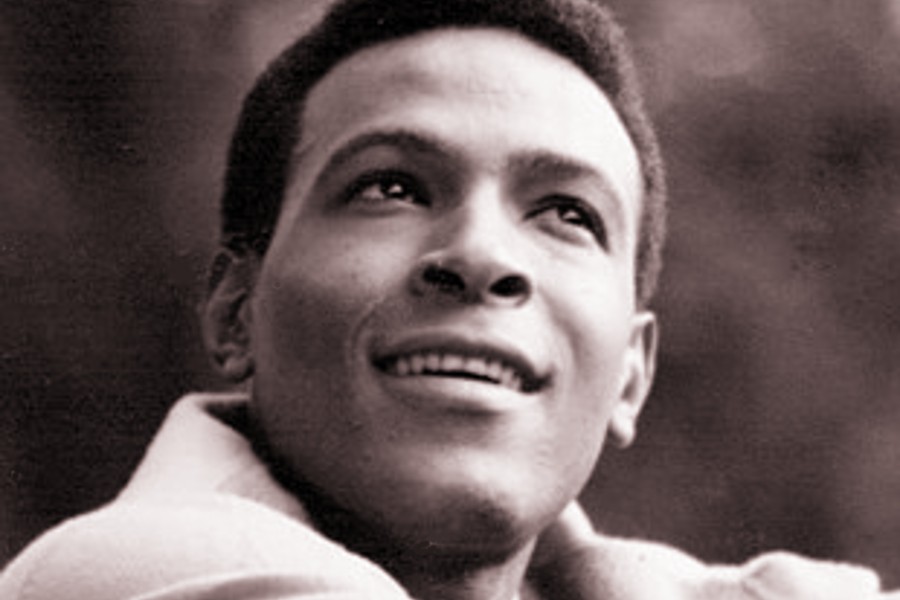 Burton Stephen “Burt” Lancaster (November 2, 1913 – October 20, 1994) was an American film actor noted for his athletic physique, blue eyes, and distinctive smile (which he called “The Grin”).
Burton Stephen “Burt” Lancaster (November 2, 1913 – October 20, 1994) was an American film actor noted for his athletic physique, blue eyes, and distinctive smile (which he called “The Grin”).
After initially building his career on “tough guy” roles Lancaster abandoned his “all-American” image in the late 1950s in favor of more complex and challenging roles, and came to be regarded as one of the best motion picture actors of his generation.
Lancaster was nominated four times for Academy Awards and won once for his work in Elmer Gantry in 1960. He also won a Golden Globe for that performance and BAFTA Awards for The Birdman of Alcatraz (1962) and Atlantic City (1980). His production company, Hecht-Hill-Lancaster, was the most successful and innovative star-driven independent production company in Hollywood in the 1950s, making movies such as Marty (1955), Trapeze (1956), Sweet Smell of Success (1957), and Separate Tables (1958).
In 1999, the American Film Institute named Lancaster 19th among the greatest male stars of all time.
Lancaster was born in East Harlem, New York City, at his parents’ home at 209 East 106th Street, between Second and Third Avenues, today the site of Benjamin Franklin Plaza. Lancaster was the son of Elizabeth (née Roberts) and James Henry Lancaster, who was a postman. Both of his parents were Protestants of working-class origin. All of Lancaster’s grandparents were Northern Irish immigrants to the U.S.; his maternal grandparents were from Belfast, and were descendants of English immigrants toIreland. The family believed themselves to be related to Frederick Roberts, 1st Earl Roberts. Lancaster grew up in East Harlem and spent much of his time on the streets, where he developed great interest and skill in gymnastics while attending DeWitt Clinton High School, where he was a basketball star. Before he graduated from DeWitt Clinton, his mother died of a cerebral hemorrhage. Lancaster was accepted into New York University with an athletic scholarship but subsequently dropped out.
At the age of 19, Lancaster met Nick Cravat, with whom he continued to work throughout his life. Together they learned to act in local theatre productions and circus arts at Union Settlement, one of the city’s oldest settlement houses. They formed the acrobat duo “Lang and Cravat” in the 1930s and soon joined the Kay Brothers circus. However, in 1939, an injury forced Lancaster to give up the profession, with great regret. He then found temporary work until 1942 — first as a salesman for Marshall Fields and then as a singing waiter in various restaurants.
The United States having then entered World War II, Lancaster joined the United States Army and performed with the Army’s Twenty-First Special Services Division, one of the military groups organized to follow the troops on the ground and provide USO entertainment to keep up morale. He served with General Mark Clark’s Fifth Army inItaly from 1943–1945.
Though initially unenthusiastic about acting, he returned from service, auditioned for a Broadway play, and was offered a role. Although Harry Brown’s A Sound of Hunting had a run of only three weeks, Lancaster’s performance drew the attention of a Hollywood agent, Harold Hecht, and through him to Hal Wallis, who cast Lancaster in The Killers (1946). (Hecht and Lancaster later formed several production companies in the 1950s to give Lancaster greater creative control.) The tall, muscular actor won significant acclaim and appeared in two more films the following year. Subsequently, he played in a variety of films, especially in dramas, thrillers, and military and adventure films. In two, The Flame and the Arrow and The Crimson Pirate, a friend from his circus years, Nick Cravat, played a key supporting role, and both actors impressed audiences with their acrobatic prowess.
In 1953, Lancaster played one of his best remembered roles with Deborah Kerr in From Here to Eternity. The American Film Institute acknowledged the iconic status of the scene from that film in which he and Deborah Kerr make love on a Hawaiian beach amid the crashing waves. The organization named it one of “AFI’s top 100 Most Romantic Films” of all time.
Lancaster won the 1960 Academy Award for Best Actor, a Golden Globe Award, and the New York Film Critics Award for his performance in Elmer Gantry.
In 1966, at the age of 52, Lancaster appeared semi-nude in director Frank Perry’s film, The Swimmer in what Roger Ebert called, “his finest performance.” Prior to working on The Swimmer, Lancaster was terrified of the water because he didn’t know how to swim. In preparation for the film, the athlete took swimming lessons from UCLA swim coach, Bob Horn. The film was not released until 1968 when it proved to be a commercial failure, though Lancaster remained proud of the movie and his performance.
During the latter part of his career, Lancaster left adventure and acrobatic films behind and portrayed more distinguished characters. This period brought him work on several European productions, with directors such as Luchino Visconti and Bernardo Bertolucci. Lancaster sought demanding roles, and if he liked a part or a director, he was prepared to work for much lower pay than he might have earned elsewhere. He even helped to finance movies whose artistic value he believed in. He also mentored directors such as Sydney Pollack and John Frankenheimer and appeared in several television films. Lancaster’s last film was Field of Dreams (1989).
For his contribution to the motion picture industry, Lancaster has a star on the Hollywood Walk of Fame at 6801 Hollywood Boulevard.
Lancaster was an early and successful actor/producer. In 1952, Lancaster co-produced The Crimson Pirate with producer Harold Hecht (who had previously produced three Lancaster films under his own production company Norma Productions; Kiss the Blood Off My Hands (1948), The Flame and the Arrow (1950), and Ten Tall Men (1951)). In 1954, they collaborated again on His Majesty O’Keefe, with Lancaster acting and Hecht producing. The writer for this film was James Hill. The trio started a production company, originally with Hill as a silent partner, under the name “Hecht-Lancaster.” The name was later extended to include all three with “Hecht-Hill-Lancaster.”
The “H-H-L” team impressed Hollywood with its success; as Life wrote in 1957, “[a]fter the independent production of a baker’s dozen of pictures it has yet to have its first flop … (They were also good pictures.).” Together they produced the films Apache(1954), Vera Cruz (1954), Marty (1955) (which won both the Academy Award for Best Picture and the Palme d’Or award at the Cannes Film Festival), The Kentuckian (1955), Trapeze (1956), The Bachelor Party (1956), Sweet Smell of Success (1957), Run Silent, Run Deep (1958), Separate Tables (1958), The Devil’s Disciple (1959), Take a Giant Step (1959), Summer of the Seventeenth Doll (1960), and The Unforgiven (1960). The company dissolved in 1960, but Hecht would produce two more films in which Lancaster acted, under Norma Productions, The Young Savages (1961) and Birdman of Alcatraz (1962). Twelve years later, Hecht and Lancaster produced Ulzana’s Raid (1972) together.
In the late 1960s, Lancaster teamed with Roland Kibbee to form “Norlan Productions” and along with “Bristol Films” produce The Scalphunters (1968), Valdez Is Coming (1971), and The Midnight Man (1974).
Lancaster directed two films, The Kentuckian (1955) and The Midnight Man (1974).
Lancaster used make-up veteran Robert Schiffer in 20 credited films, hiring Schiffer on nearly all the films he produced.
Apart from acting in a total of 17 films produced by Harold Hecht, Lancaster also appeared in eight films produced by Hal B. Wallis.
Lancaster often asked his close friend Nick Cravat to appear in his films. They co-starred together in nine: The Flame and the Arrow (1952), Ten Tall Men (1951), The Crimson Pirate (1952), Run Silent, Run Deep (1958), The Scalphunters (1968), Valdez Is Coming (1971), Ulzana’s Raid (1972), The Midnight Man (1974), and The Island of Dr. Moreau (1977).
Lancaster made seven films with Kirk Douglas, including I Walk Alone (1948), Gunfight at the O.K. Corral (1957), The Devil’s Disciple (1959), The List of Adrian Messenger(1963), Seven Days in May (1964), Victory at Entebbe (1976) and Tough Guys (1986). Additionally, the pair acted in comedy musical sketches for the 1958 and 1959 Oscar celebrations. Although perceived as a friendly collaboration, the two actors were never friends or fond of each other in real life, as was depicted in their respective biographical books.
John Frankenheimer directed five films with Lancaster: The Young Savages (1961), Birdman of Alcatraz (1962), Seven Days in May (1964), The Train (1964), and The Gypsy Moths (1969).
Lancaster starred in three films with Deborah Kerr: From Here to Eternity, Separate Tables, and The Gypsy Moths.
The centennial of Lancaster’s birth was honored at New York City’s Film Society of Lincoln Center in May 2013 with the screening of twelve of the actor’s finest films, from The Killers of 1946 to Atlantic City in 1981.
Lancaster vigorously guarded his private life. He was married three times. His first two marriages ended in divorce—to June Ernst from 1935 to 1946, and to Norma Anderson from 1946 to 1969. His third marriage, to Susan Martin, was from September 1990 until his death in 1994. All five of his children were with Norma Anderson: Bill, who became a screenwriter; James; Susan; Joanna; and Sighle (pronounced Sheila). He claimed he was romantically involved with Deborah Kerr during the filming of From Here to Eternity in 1953. However, Kerr stated that while there was a spark of attraction, nothing ever happened. He did have an affair with Joan Blondell. In her 1980 autobiography,Shelley Winters claimed to have had a long affair with him.
Lancaster was a vocal supporter of liberal political causes, and frequently spoke out in support of racial minorities, including at the March on Washington in 1963. He was a vocal opponent of the Vietnam War and political movements such as McCarthyism, and he helped pay for the successful defense of a soldier accused of “fragging” (murdering) another soldier during the war. In 1968, Lancaster actively supported the presidential candidacy of antiwar Senator Eugene McCarthy of Minnesota, and frequently spoke on his behalf during the Democratic primaries. He heavily campaigned for George McGovern in the 1972 presidential election. In 1985, Lancaster joined the fight against AIDS after his close friend, Rock Hudson, contracted the disease. He campaigned for Michael Dukakis in the 1988 presidential election.
As Lancaster grew older, he became increasingly plagued by atherosclerosis, barely surviving a routine gall bladder operation in January 1980. Following two minor heart attacks he had to undergo an emergency quadruple coronary bypass in 1983, after which he was extremely weak, but he still managed to continue acting and attended a 1988 Congressional hearing with old colleagues such as Jimmy Stewart and Ginger Rogers to protest media magnate Ted Turner’s plan to colorize various black-and-white films from the 1930s and 1940s. His acting career ended after he suffered a stroke on November 30, 1990 which left him partly paralyzed and largely unable to speak. He died in his Century City apartment in Los Angeles from a third heart attack at 4:50 A.M. on October 20, 1994 at the age of 80.
Lancaster was cremated and his ashes were buried under a large oak tree in Westwood Memorial Park located in Westwood Village, Los Angeles County, California. A small square ground plaque inscribed only with “BURT LANCASTER 1913–1994” marks his final resting place. Upon his death, as he requested, he had no memorial or funeral service.
Become a Harlem Insider!
By submitting this form, you are consenting to receive marketing emails from: Harlem World Magazine, 2521 1/2 west 42nd street, Los Angeles, CA, 90008, https://www.harlemworldmagazine.com. You can revoke your consent to receive emails at any time by using the SafeUnsubscribe® link, found at the bottom of every email. Emails are serviced by Constant Contact








